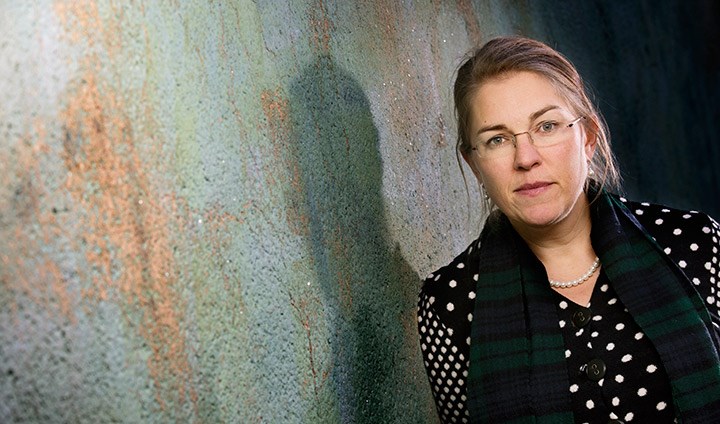EU lobbyists as behind-the-scenes political friends

Camilla Nothhaft
Lobbyists work actively behind the scenes to find ways to influence politicians. Preferably, they would like to be viewed as friends. The EU legislation that regulates lobbying, does not address how it takes place in the real world. This is shown by Camilla Nothhaft in her thesis in Media and Communication at Örebro University.
At a seminar on May 10 at the Institute for Futures Studies in Stockholm, Camilla Nothhaft will present her results from the study on how lobbyists and politicians meet in Brussels and the unwritten rules steering their meetings. The seminar culminates in the discussion around the following questions: Is it possible to create smart governmental systems that are not affected by human realities? If more complexity, more auditing and more controlled transparency do not necessary create enhanced transparency per se: how can enhanced transparency be achieved?
Camilla Nothhaft has researched how professional lobbyism works in Brussels. She has examined how, where and under what conditions that lobbyists and politicians meet, and what happens afterwards.
Previous research in this field has often examined other aspects of lobbying, rather than the actual conversation between lobbyists and politicians. Those studies show that there is a tendency to see communication between the two groups, strictly as a transfer of information.
Ambiguous roles in meetings
"My research shows that the current legislation, which is supposed to regulate lobbying in the EU, does not cover how it works in the real world. A great deal of lobbying takes place without the parties expressly considering that it is actually lobbying which is taking place, thus roles are sometimes less obvious," says Camilla Nothhaft.
To observe everything that happened between seven lobbyists and MEPs, she meticulously followed each and every one of them for a week, from morning to late evening. She also performed some 40 interviews.
"The most interesting thing is that I can show how lobbyists are creative at standing out, so as to appear to be more than just a run of the mill lobbyist. They make every effort to establish relationships with politicians, where their position as an influencer is put aside, in favour of other roles in the relationship. I saw, for example, how lobbyists want to be a helping friend," said Camilla Nothhaft.
Other rules apply - behind the scenes
She showed in her study how lobbyists try to appear as equals with politicians, and with the same interests. Their aim seems to be that they want to be able to meet with politicians in other forms, and in other roles, then in the explicit lobbying meetings which normally take place at the parliamentarian's office.
Lobbyists use different strategies, and establish relationships with politicians, with the aim of creating opportunities for socializing behind the scenes, where other rules apply, then in public meetings.
"They can also negotiate for opportunities to cooperate with politicians, to determine the overlapping aspects of their otherwise separate agendas. In this way, lobbyists and politicians are able to work together to achieve their respective goals."
Extent of cooperation is surprising
Camilla Nothhaft continues, "I was actually surprised of the extent of cooperation between lobbyists and politicians, which was much more than I had expected. They help each other out – and work a lot together."
Her results have already been discussed at a meeting in Brussels on Globe EU, and Camilla Nothhaft hopes that it may also serve as a reference document to EU institutions, in connection with discussions on new lobbying regulations in Brussels.
Text: Cathrine Gustavsson
Translation: Jerry Gray
Photo: Rickard Kilström/press photo
